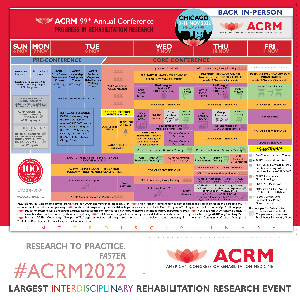Back
Oral Presentation
COVID-19
Experiences of Social Isolation Among People with Disabilities During the COVID-19 Pandemic
Wednesday, November 9, 2022
11:35 AM – 11:42 AM

Jessica Kersey
Postdoctoral Research Associate
University of Illinois at Chicago, United States
Presenting Author(s)
The COVID-19 pandemic has worsened disparities in social participation among people with disabilities. However, there is little evidence to descibe the causes of these disparities and their impact on daily life, leaving little information to guide intervention development. This session will present a focus group study with adults with disabilities that explored experiences with social participation during the pandemic, with a focus on barriers, supports, and rehabilitation and community support needs. Results suggest that people with disabilities have experienced significant social isolation throughout the pandemic, which is perceived to have worsened their physical and mental health. Lack of equitable health care, attitudes of professionals and family members, lack of employment and volunteer opportunities, and lack of access to pre-pandemic social activities, services, and supports were identified as contributing factors. The results of this study provide important pilot data for larger focus groups focused on rehabilitation intervention needs and pilot testing.
Learning Objectives:
- describe experiences of social isolation and social participation among people with disabilities during the COVID-19 pandemic
- identify disparities in social participation outcomes among people with disabilities
- identify elements of intervention that may address pandemic-related disparities in social participation

.jpg)
